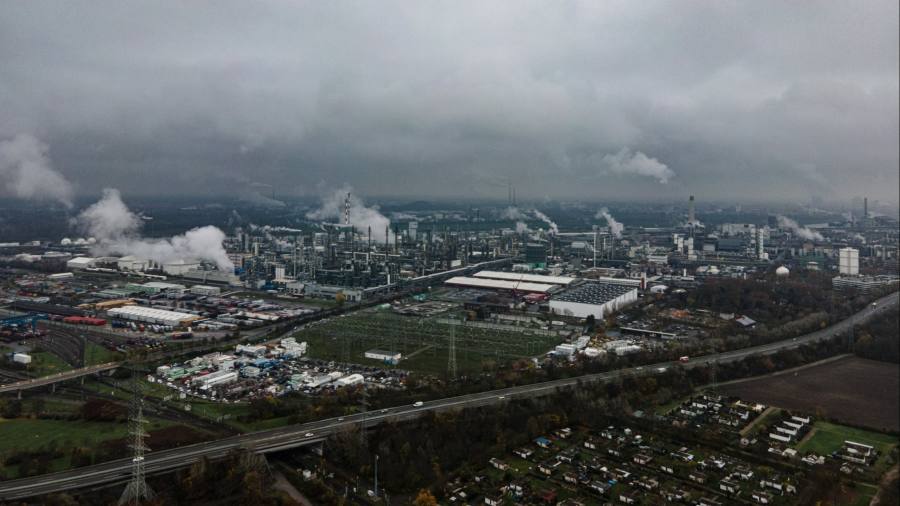Receive free Chemicals updates
We’ll send you a myFT Daily Digest email rounding up the latest Chemicals news every morning.
German chemical groups are investing in modern plants and green technologies — but largely outside Europe, the industry’s largest union has warned.
“Investments in new plants and new technologies [ . . .] are flooding out of Germany,” said Michael Vassiliadis, chair of Germany’s union for the chemical and energy industries IG BCE, adding that the trend had been accelerated “since the problem with energy”.
The main benefactors, Vassiliadis said, were China and the US, which were offering companies “full packages” that on top of tax incentives include access to green energy and regulatory fast-tracking.
Competition for foreign direct investment is increasing for European countries. Germany last year suffered a record deficit in corporate investments as companies looked overseas, according to the German Economic Institute, which called the situation “alarming”.
Washington last year unveiled large subsidies available for investments in various green technologies under its Inflation Reduction Act, which seeks to attract foreign direct investment in key sectors. China has likewise delved into state coffers to bolster certain industries — one of which remains chemicals, Vassiliadis said.
Beijing, which is struggling with a protracted economic slowdown, is especially welcoming of foreign direct investment in areas involving high technology, such as advanced manufacturing, information technology and scientific research as it seeks to move its industry up the value chain.
Vassiliadis, who in his role as union leader sits on the supervisory board of BASF, said the German chemical group is a striking example of a company investing in state-of-art technology in China.
The world’s largest chemical company is currently building a €10bn petrochemicals complex in Zhanjiang. Modelled on the German group’s headquarters in Ludwigshafen, it will be equipped with “cutting-edge technologies” and the “highest . . . sustainability standards”. The company has meanwhile warned that it will “permanently” downsize its operations in Europe.
Vassiliadis said the investment was possible through the support of Chinese authorities, which met the company’s request for large amounts of cheap, green energy by building a wind farm next to the site.
Christian Faitz, co-head of chemical sector research at Kepler Cheuvreux, said he did not believe any new plants producing ammonia — which plays a role in a net zero economy through its role as a hydrogen vehicle — would be built in Europe. Meanwhile, BASF has closed one of its two ammonia plants in Ludwigshafen, citing high energy costs.
“I would hope that [European] politicians are aware of these trends,” Faitz said, adding the trend could threaten industrial growth on the continent.
Germany’s chemical industry trade group VCI said companies in the sector could not afford not to invest in China, which makes up roughly 43 per cent of the global market.
Investments by German chemical groups in China had “expanded” in recent years, the VCI added, stating that a fifth of foreign investments by the industry ended up in the country.
Additional reporting by Joe Leahy in Beijing
Read the full article here




